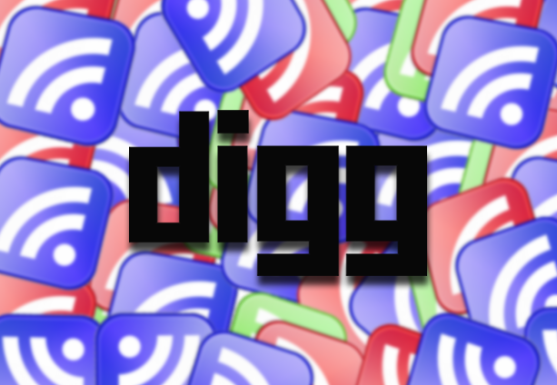For a brief period I thought that killing Google Reader was one of the dumbest things Google had ever done. Now, however, I know better: Reader’s death will create an explosion of newsreader apps — many of which will be more compelling than Reader itself.
One of these apps will certainly come from Digg, which is slowly fleshing out the vision for its ambitious, user-focused Reader replacement. Digg wants to build something that’s fast, simple, and open, but that means doing more than just making a dull copy of Google Reader (even if that’s what people think they actually want)
“We think we can do some stuff that Reader doesn’t currently do,” Digg president Andrew McLaughlin told me earlier today.
McLaughlin, like anyone who is paying attention, knows that the web has already shifted away from the kitchen sink model of news gathering that Google Reader has been home to. Web readers today aren’t just getting their news directly from sources; they’re using services using Linkedin, Twitter, and Hacker News. The Digg Reader (as I’m calling it) will find a way to tap into those shifting browsing habits — all the while (hopefully!) avoiding some of Reader’s biggest drawbacks.
The biggest one? Feeds themselves.
“One of that things that frustrates me about Reader is the endless scrolling through reverse chronological feeds. What we really want to do is find a way to extract that news and make it more findable and readable,” McLaughlin says.
But the Digg Reader will offer value to more than just users: Digg is trying to keep the needs of publishers in mind as well. Right now, Digg’s greatest value to websites comes in the form of traffic: Digg links to a story, adds an enticing (McLaughlin calls it “seductive”) headline, and readers click through — often in droves. McLaughlin, however, wants the Digg Reader to do more than that. “We have to understand better where publishers are heading and give them a newsreader they’ll welcome,” he said.
How exactly does Digg plan to do that? “We’re not really sure yet,” McLaughlin admits.
That tempering of expectations is a prevalent theme in the early discussion of what Digg is working on, probably for the better. “I think that people should keep their expectations low at first. The most important thing we can do at first is create something that’s super-clean, super-fast, and super-functional. Then we can build off that,” McLaughlin said.
Related: Here’s how personal news mag Zite plans to replace Google Reader


